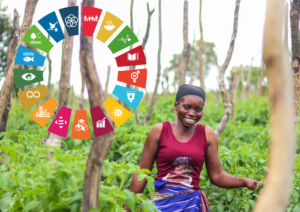A compromised ecosystem is becoming increasingly dangerous due to the crucial role it plays in regulating the Earth’s climate, storing carbon, and cycling nutrients.

The human race relies on a robust and healthy environment for our own well-being, such as clean air, unpolluted water, soil fertility, and biodiversity.
When ecosystems are damaged or destroyed, these services are lost, which can have significant impacts on human health, food security, and economic development.
The most vulnerable communities are hardest hit by ecosystem destruction and biodiversity loss because so often they rely directly on natural resources for their livelihoods, such as fishing, farming, and forestry. This takes direct aim at the livelihoods and well-being of those who depend directly on these resources first before we see the circular effect it takes on the rest of the World.
For example, biodiversity loss in marine ecosystems can lead to overfishing and the collapse of fish stocks. Similarly, poor agricultural ecosystems can lead to soil degradation, crop failures, and reduced yields. These issues hit the small-holder farmers and fishermen&women first because they cannot feed their families or sell their products and catch for basic necessities.
In addition to direct impacts on livelihoods, the indirect impacts of biodiversity loss, again, hit those living closest to the areas impacted, resulting in an increased vulnerability to natural disasters and climate change. Strong ecosystems act as natural barriers to flooding and soil erosion and foster natural cycles such as carbon sequestration. Without which the floodgates are open to all kinds of natural disasters.

Those who are dependent on natural resources for their livelihoods become even more vulnerable to the elements once those resources come under threat.
Preserving and restoring ecosystems is paramount to promoting sustainable development and reducing poverty.
At BCP, we believe that REDD+ is a valuable tool to ensure the World’s ecosystem is left intact and redirects communities’ sole dependency away from the environment, by giving them alternative revenue streams from the sale of carbon offsets, and by offering viable livelihood schemes and training such as conservation farming and sustainable honey production.
